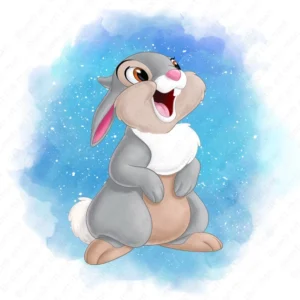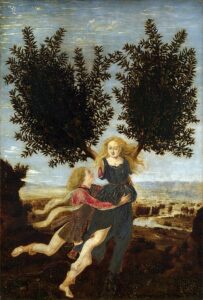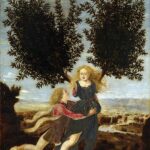
Recently a reader asked this question: “If a woman performs the function of being an artist’s ‘muse’ and if the artist believes (to paraphrase Joseph Campbell in ‘The White Goddess”) that ‘she is a representative of the goddess deconstructing and remaking him’ then where does muse/anima begin and end?”
I wasn’t exactly sure I understood the question fully, but here’s how I replied…in a slightly revised form now that I’ve decided to make a post of it.
Well, right off hand I’d say that the muse is one of several functions of the Anima. Anima is the name Carl Jung gave to a man’s unconscious feminine side. As I use the term however, I essentially mean the unconscious or undeveloped feminine in everyone. Sometimes I use Anima and Soul interchangably. I do the same with the unconscious masculine: i.e. Animus or Spirit.
Our feminine side is associated with empathy, intimately relating, nurturing, receptivity, tender feelings, the instincts, and all the soulful, material, physical aspects of human life. Whichever of these are not consciously developed remain in the unconscious as our Anima.
Our instincts are the source of all creativity: i.e. we need to eat (the instinct for nurturance), so we create weapons and tools to catch and kill animals and fish. Or look for work we can enjoy and earn money doing. Paradoxically, we contain an instinct for creativity itself, although not everyone activates it as much as artists and other unusually creative people.
Patriarchal culture educates us into a one-sided way of thinking and behaving with values that are active, productive, dynamic, goal- and achievement-oriented, practical, clear, structured, logical, linear and competitive. In this masculine-oriented environment, many of us repress our Soul into the unconscious, thus losing the ability to care deeply and have empathy for others, cultivate intimate relationships, feel and express tender emotions, tend lovingly to our bodies and the everyday physical requirements of life, and be receptive to our own repressed needs and instincts. Soul requires more time, quiet, stillness, space, receptivity and contemplation to get in touch with the inner life—including inspiring inner images, visions, dreams and imagination—than the fast track allows.
As a result, many, if not most, men project their Anima onto a woman and let her carry it for them. A man can learn a lot about Soul vicariously through her, but he won’t necessarily learn to experience his own Soul, which might be quite different from hers.
“In the middle of the journey of our life I came to myself within a dark wood where the straight way was lost.” ~Dante Alighieri








0 Responses
Reblogged this on lampmagician.
Many thanks!
Wish more men could read this! Thanks for explaining it in a clear fashion! With aloha,
Thank you, Fran. And you’re welcome! 🙂
What a lovely job you’ve done breaking this down and explaining what can sometimes be a really
confusing concept. Thanks, Jeanie 🙂
Thanks, Therese. It’s great to hear from you. Wondering how you’re doing with school; very well, I would presume! 🙂
Such a rich and layered articulation to something many of us act out unknowingly. I’ve read this now more than once and cross-referencing it to personal experience it rings true. You have provided a very enlightening description of processes that occur simultaneously in the phases of ‘love.’ Thank you so very much!
You’re welcome.. Steven. I’m so glad this makes sense to you. Projection is such a common thing—everybody does it without realizing it—and this, plus our naive beliefs that we know ourselves, (or our unwillingness to go very deep)—keeps us ignorant of a basic and very real psychological reality. Many thanks for writing.
I’ll also add that it seems you are joining together both a very practical understanding of expectations & desires while unfolding the mysterious workings of the unknown ‘being’ we are. Which truly fits your ‘adage’ above: Think psychologically, live spiritually. Beautiful!
I love this comment. I’m still smiling. A sincere thank you.
Beautiful and so lovingly penned, I just love the story of how Dante met his Beatrice and how she inspired him to write ‘The Divine Comedy.’ Deep in the Jung-le on the rare occasions when I too have encountered such transformative bliss between ego and Self it is like being given the most beautiful gift ever from the heavens, presented by the Great Mother herself.
I feel your last line really clinches it for me as I recognise that I too wish to make my life a work of art by gathering my poems together and publishing them for the first time. Your earlier comment on my blog just blew me away Jeanie, thank you so very much again. Blessings, Deborah x
Thank you very much, Deborah. I love your term “Jung-le.” It’s a very apt descriptor for his acceptance of the wild and unconscious aspects of the psyche. And encountering the “transformative bliss between ego and Self” is a marvelous way of expressing the powerful energy that arises between these two archetypes when they begin to consciously communicate. I’ve not heard it before. Thanks for this new language. I enjoyed your latest post at http://theliberatedsheep.com/ very much and recommend it highly to my readers. Blessings, Jeanie
Well, it probably took me about twenty years to understand who was this fascinating woman, haunting my dreams and the reason of her existence. The ambiguity between Anima and Muse can constitute a large obstacle to someone who’s obsessed with its Anima and who’s trying to discover the truth about these implicite projections he does onto women. Your article is very well explained and deserves to perfectly dismantle the confusion between these two terms. I translated (laboriously tried to, with my knowledge of English) your article in French to describe my entourage the functions of my mind, thank you so much for your help, to enlighten the darkness of our unconscious processes.
You’re so welcome, Jeremy. I’m thrilled to know this article helped you understand yourself better. This is my goal in everything I write. Thank you for taking the time to tell me. You’ve made my day!
This is exactly what I was looking for! l love when I’m searching for answers and find inspiring and deep wisdom explained with simple words. Thank you so much Jean.
I’m delighted to hear this. Thank you so much for letting me know. You’ve made my day! 🙂